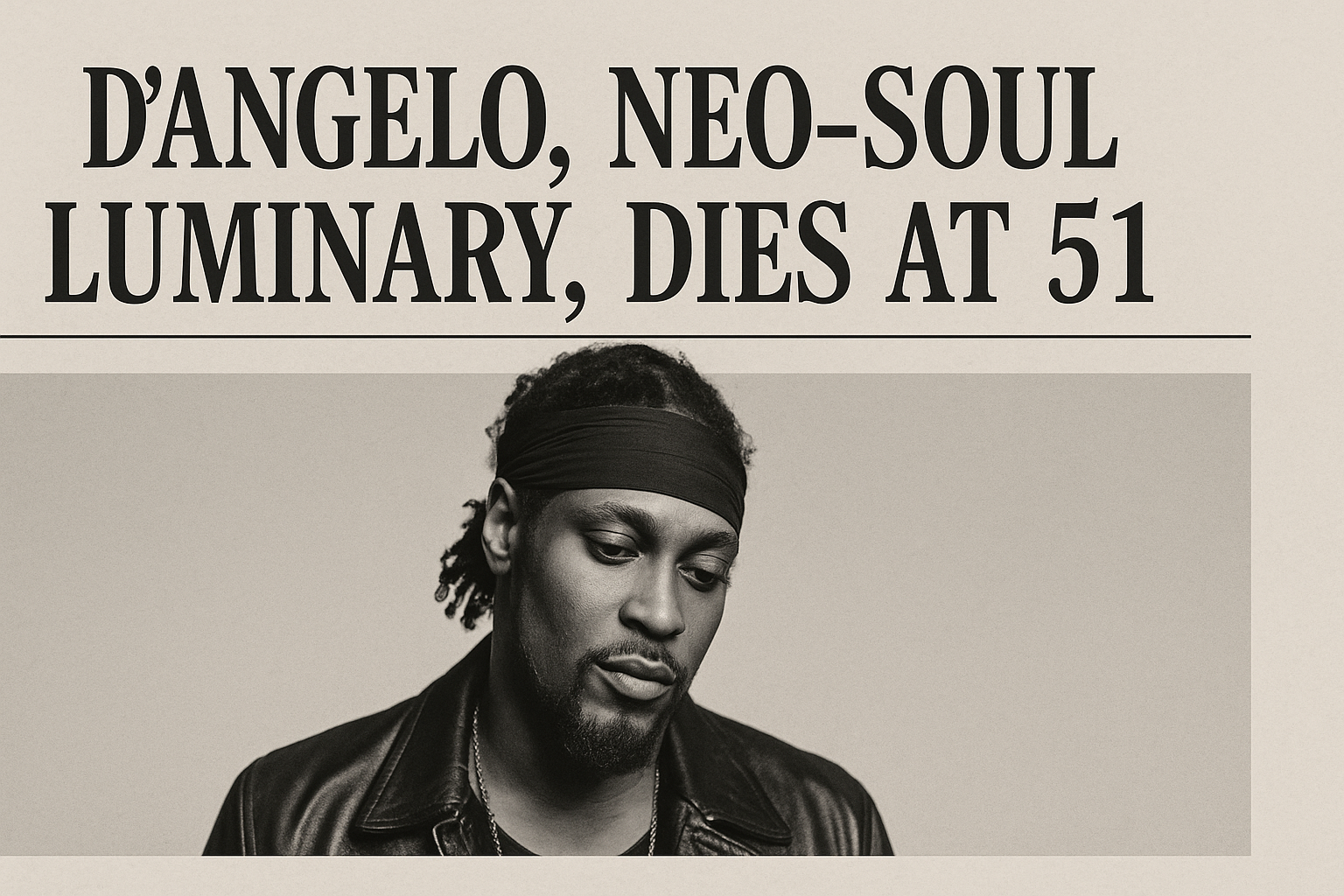Michael Eugene Archer, known as D’Angelo, died Oct. 14 at 51, his family confirmed Tuesday via ABC News. The R&B singer, they said, fought a long, courageous battle with cancer before passing.
“The shining star of our family has dimmed his light for us in this life,” the statement said. “After a prolonged and courageous battle with cancer, we are heartbroken to announce D’Angelo has been called home, departing this life today, October 14th, 2025.” The family added, “We are saddened that he can only leave dear memories with his family. But we are eternally grateful for the legacy of extraordinarily moving music he leaves behind.” They also asked for privacy. At the same time, they invited supporters to “join us in mourning his passing while also celebrating the gift of song that he has left for the world.”
D’Angelo was born Feb. 11, 1974, in Richmond, Virginia, as Michael Eugene Archer. Raised in a Pentecostal household, he had his earliest musical experiences in church. In a 2000 Rolling Stone interview, he said, “I played everywhere I could … That’s the real stomp-down, Pentecostal, holiness church … Shoutin’, speakin’ in tongues and just fire. That’s where I really grew.”
His professional breakthrough came in 1995 with the release of Brown Sugar, his debut album. The album drew on influences from soul, jazz, gospel, and hip-hop. He later told Interview Magazine that he composed nearly all of those songs while still living in Virginia, between the ages of 18 and 19. That project, along with his standout tracks “Lady” and “Brown Sugar,” helped establish him as a foundational voice in the nascent neo-soul movement.
In the years that followed, D’Angelo’s output remained deliberately sparse. Yet each release carried notable weight. His 2000 album Voodoo won a Grammy for Best R&B Album. Its lead single, “Untitled (How Does It Feel),” earned him the Best Male R&B Performance award. The video for that song became iconic, widely discussed for its intimate presentation. It was a reminder that his artistry often merged sensuality with spiritual depth.
He returned in 2014 from a long absence with Black Messiah, an album that responded to the social currents of the time and earned him further Grammy recognition. His body of work comprised just three studio albums spanning decades. Yet it exerted outsized influence on modern R&B and soul.
Beyond his music, D’Angelo was known for his private nature. He often retreated from the public eye. Yet even in those quieter moments, his voice resonated. RCA Records, in a statement following his death, called him “a peerless visionary.” They said his “songwriting, musicianship, and unmistakable vocal styling have endured and will continue to inspire generations of artists to come.”
He leaves behind three children—including a son he shared with the late singer Angie Stone—and a devoted constellation of fans and fellow artists. His passing arrived on October 14, 2025, less than a year after Stone’s death in March 2025.
Tributes emerged swiftly across the music world. Many lauded his rare blend of spiritual earnestness and musical daring. Others praised his refusal to chase trends and his commitment to emotional authenticity. In a moment when so much music transacts in volume and visibility, D’Angelo’s legacy serves as a reminder that power often resides in restraint.
As the world processes this loss, his songs remain: weary and hopeful, sensual and sacred, unafraid to bend toward the divine. In that contradiction lies the enduring gift he leaves behind. He also invites new listeners to discover his voice anew.


